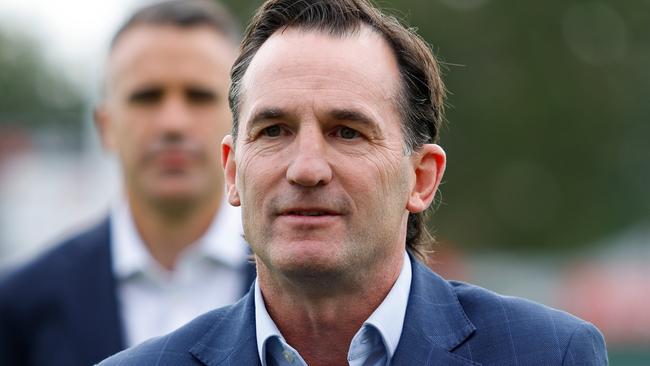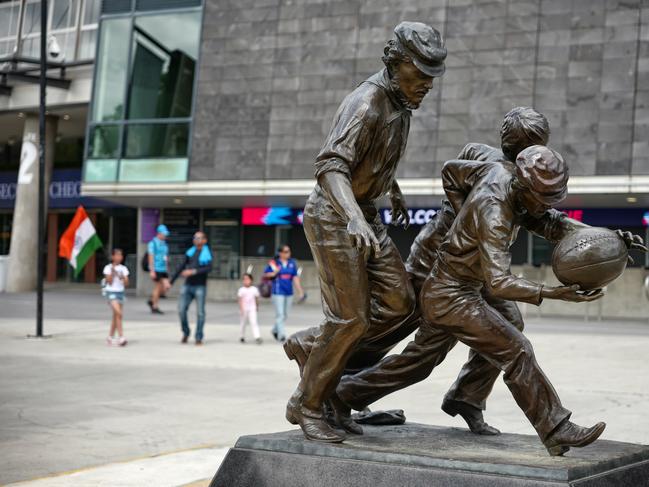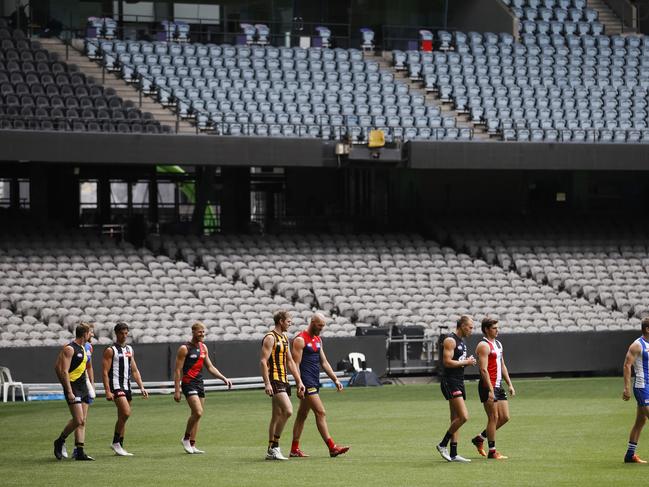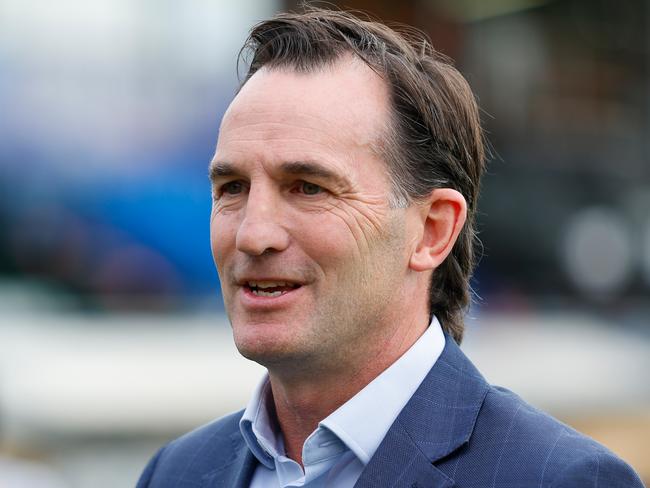AFL executives grilled at inquiry into head trauma in sports
The AFL has been put in the hot seat during an inquiry into the impact of head trauma on athletes.

The AFL’s top doctor said the culture of underreporting head knocks among athletes needs to improve as he was grilled on how the sport is protecting players from the potentially deadly consequences of concussion.
The league’s chief medical officer, Michael Makdissi, was one of three AFL heavyweights who fronted a parliamentary inquiry into concussions and head trauma in contact sports on Wednesday.
Previous witnesses have told the inquiry the AFL’s concussion management hasn’t been good enough and have claimed the sport wants to get players back onto the field as quickly as possible.
Dr Makdissi told the inquiry on Wednesday the sport took head injuries seriously, noting about 70 to 80 players in the professional competition sustained a concussion each year.
He said AFL players were more likely to report head injuries and concussions than they once were, but there was still a culture of underreporting.
“It’s an issue we all face, so we’re trying to tackle that with education, but also improving our recognition of concussion on the sidelines,” he said.
“I’ve seen quite a shift in that culture. I don’t think we’re there yet. I think we need some continued education … and we need to be working with the (AFL) Players’ Association on that.”

Set up amid growing concerns about chronic traumatic encephalopathy, the inquiry has heard the AFL and NRL recognise the link between repeated head injuries and the serious neurodegenerative disease.
The deaths of high profile players – including AFL legend Danny Frawley – who have been diagnosed post-mortem with CTE have put pressure on Australian sports to improve the way they deal with head trauma.
Dr Makdissi said on Wednesday the AFL didn’t have a specific policy on CTE – a still little-understood condition which can only be diagnosed with an autopsy.
“I don’t think that we need to have a policy to show how seriously we take CTE in our sport,” he said.
“We have guidelines, research projects and we have our scientific committee, our working groups that are all looking at the impacts of concussion and non-concussive head trauma and the impact on CTE.”
Representatives from the AFL Players’ Association also fronted the inquiry’s final day of public hearings in Melbourne on Wednesday, where they were pressed on the sport’s duty of care to ex-players.
The inquiry heard the most up-to-date collective bargaining agreement – which the AFLPA is in the process of re-negotiating – included a $4m annual fund for career-ending injury payments of up to $500,000 including for concussion.

A survey of AFLPA members, which was included in the association’s submission to the inquiry, found 23 per cent of AFL players and 17 per cent of AFLW players experienced a concussion during the 2022 season.
Nine per cent of AFL players and 2 per cent of AFLW players experienced a concussion they didn’t report, with both of these figures sitting above the five-year average for each sport.
AFLPA chief executive officer Paul Marsh said the increase in non-reporting appeared to be directly linked to the 12-day minimum sit out period the AFL mandated for players in 2021.
“We have a strong view that players need to take this injury seriously,” he said.
“I’ve certainly noticed that players are taking concussion far more seriously than what they did.”
The inquiry comes as the AFL faces multiple lawsuits relating to its handling of head trauma, including a high profile case launched by Gary Ablett Sr, as well as two separate class actions by hundreds of retired players over concussion-related injuries.

Greg Griffin, who is representing the plaintiffs in one of those class actions, told the probe a public authority should be established to create and enforce concussion protocols including return-to-play rules.
“You simply cannot trust this very, very onerous and difficult obligation upon the sporting bodies themselves because quite frankly, they’ve shown absolutely no desire to implement anything,” the lawyer said on Wednesday.
“That’s a simple criticism.”
AFL general manager Andrew Dillon, who is widely tipped as a frontrunner to take over when chief executive officer Gillon McLachlan steps down, said the code was committed to reducing the risk of head knocks and supporting former players.
However, asked at the inquiry if he had any regrets about how the code had dealt with concussions in the past, he said, “I don’t think regret is the word we would use.”
“We certainly acknowledge that there’s been an evolution of knowledge and understanding of concussion over time,” he said.
“We appreciate that there are former players that are having difficulties and we’re seeking to put in place increased support for them.”


